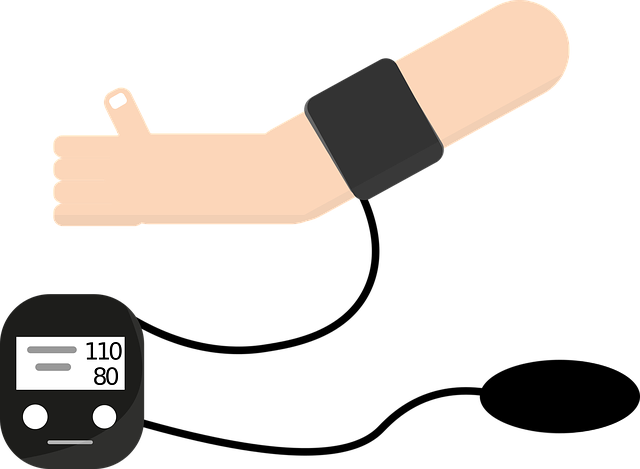
Image Source: FreeImages
Hypertension, commonly known as high blood pressure, is a medical condition in which the blood pressure levels in your arteries are consistently elevated. When hypertension becomes refractory, it means that it is resistant to treatment. This is a serious condition that requires immediate medical attention. In this article, I will be discussing various strategies for managing refractory hypertension.
Understanding Refractory Hypertension
Refractory hypertension is a condition in which a person’s blood pressure remains high despite treatment with three or more antihypertensive medications. This condition can be caused by a variety of factors, including underlying medical conditions such as kidney disease, sleep apnea, and diabetes.
It is important to understand that refractory hypertension is a serious medical condition that requires immediate attention. If left untreated, refractory hypertension can lead to complications such as heart attack, stroke, and kidney failure.
Causes and Risk Factors of Refractory Hypertension
Several factors can cause refractory hypertension. One of the primary causes is the failure to adhere to prescribed medication regimens. Other factors that can contribute to refractory hypertension include obesity, a sedentary lifestyle, excessive alcohol consumption, and smoking.
Individuals with underlying medical conditions such as kidney disease, sleep apnea, and diabetes are also at an increased risk of developing refractory hypertension. Additionally, certain medications such as nonsteroidal anti-inflammatory drugs (NSAIDs) and oral contraceptives can exacerbate hypertension and lead to refractory hypertension.
Types of Refractory Hypertension
There are several types of refractory hypertension, including:
Secondary Pulmonary Hypertension
Secondary pulmonary hypertension is a rare form of hypertension that occurs when the blood vessels in the lungs become narrow and constricted. This condition can be caused by underlying medical conditions such as chronic obstructive pulmonary disease (COPD) and sleep apnea.
Morning Hypertension
Morning hypertension is a condition in which a person’s blood pressure is consistently elevated in the morning hours. This condition can be caused by a variety of factors, including sleep apnea, stress, and poor sleep quality.
Diagnosis and Monitoring of Refractory Hypertension
Diagnosing refractory hypertension involves a thorough evaluation of a person’s medical history and physical examination. Blood pressure monitoring is also an essential component of diagnosing refractory hypertension.
Individuals diagnosed with refractory hypertension will require regular monitoring by a healthcare professional. This will involve frequent blood pressure checks, as well as monitoring for complications such as heart attack, stroke, and kidney failure.
Treatment Options for Refractory Hypertension
Several treatment options are available for individuals with refractory hypertension. These include:
Medications for Refractory Hypertension
Medications such as angiotensin-converting enzyme (ACE) inhibitors, calcium channel blockers, and diuretics are commonly used to treat refractory hypertension. In some cases, combination therapy may be necessary to achieve optimal blood pressure control.
Lifestyle Changes to Manage Refractory Hypertension
Lifestyle changes such as weight loss, regular physical activity, and a healthy diet can help manage refractory hypertension. Additionally, reducing alcohol consumption and quitting smoking can also help improve blood pressure control.
Managing Specific Challenges of Refractory Hypertension
Individuals with refractory hypertension may face specific challenges such as orthostatic hypertension, pre-hypertension, and hypertension with comorbidities.
Orthostatic Hypertension
Orthostatic hypertension is a condition in which a person’s blood pressure increases when they stand up. This condition can be managed by standing up slowly and avoiding sudden movements.
Pre-hypertension
Pre-hypertension is a condition in which a person’s blood pressure is consistently elevated but not yet in the hypertensive range. Lifestyle changes such as weight loss, regular physical activity, and a healthy diet can help manage pre-hypertension.
Support and Resources for Individuals with Refractory Hypertension
Individuals with refractory hypertension can benefit from support and resources such as support groups and educational resources provided by organizations such as the British Hypertension Society.
Additionally, healthcare professionals can provide support and resources to individuals with refractory hypertension, including information on lifestyle changes, medication management, and monitoring for complications.
Conclusion
Refractory hypertension is a serious medical condition that requires immediate attention. With the right treatment and lifestyle changes, individuals with refractory hypertension can achieve optimal blood pressure control and reduce their risk of complications. If you have been diagnosed with refractory hypertension, it is important to work closely with your healthcare team to develop a treatment plan that is right for you.
Remember, refractory hypertension can be managed, and with the right strategies and support, you can take control of your health and reduce your risk of complications.
Talk to your healthcare professional today if you are experiencing symptoms of refractory hypertension or are concerned about your blood pressure levels. Together, you can develop a treatment plan that is right for you.



